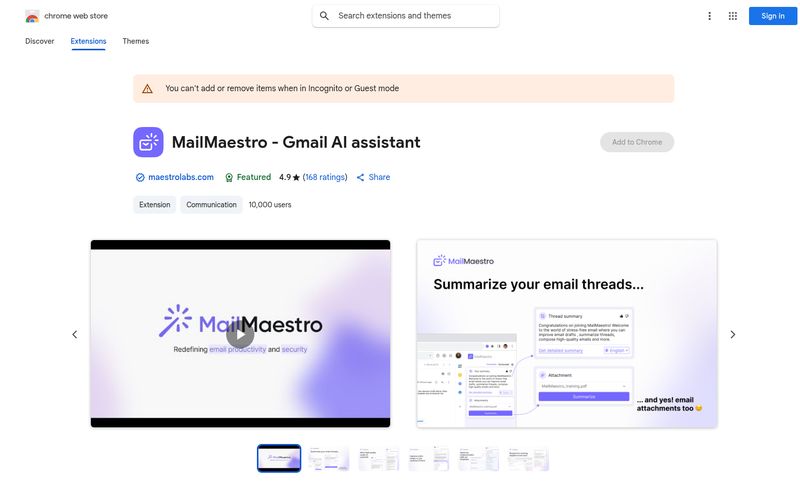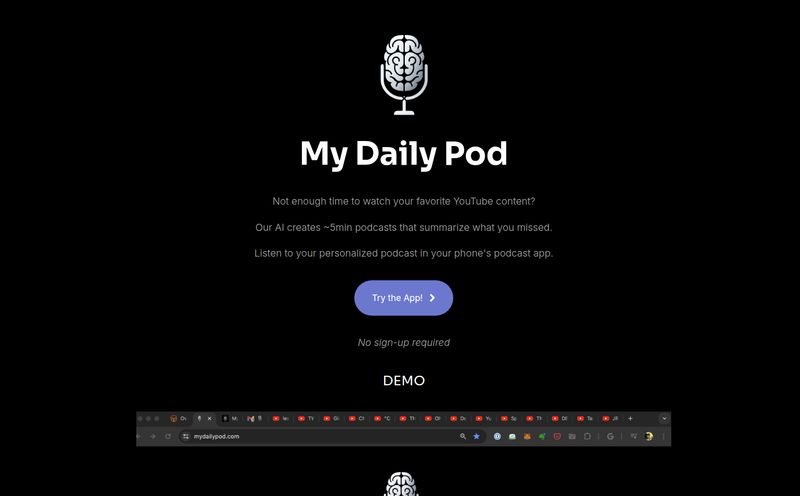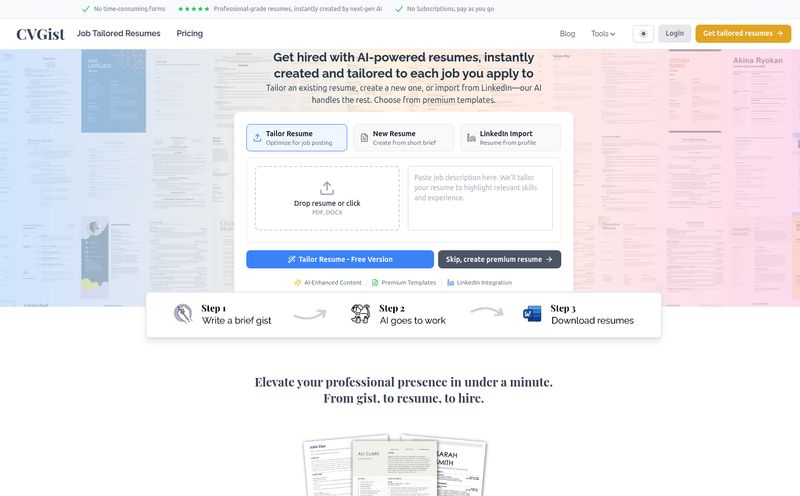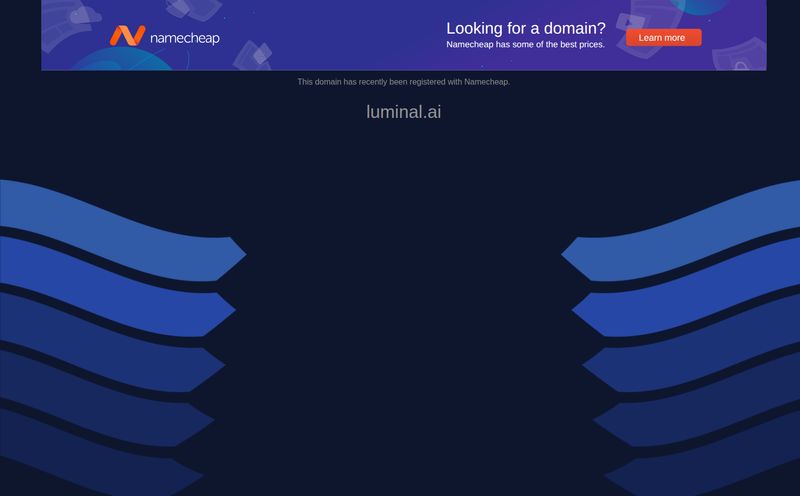If you're in the content, marketing, or general productivity space, your digital life is probably a chaotic mess of tabs, apps, and subscriptions. We're all on this perpetual quest for the Holy Grail: the one tool to rule them all. For years, Notion has been the heir apparent to that throne, a digital LEGO set for building your perfect workspace. But what if I told you a new contender just entered the ring, and it’s got AI pumping through its veins?
I'm talking about FunBlocks. I've been hearing whispers about it for a bit, usually framed as a "Notion-like platform with better AI." As someone who spends an unhealthy amount of time wrestling with content outlines, brainstorming keywords, and trying to turn caffeine into coherent sentences, my interest was piqued. Is this just another shiny object, or is it genuinely a step forward? I decided to roll up my sleeves and find out.
What Exactly is FunBlocks? More Than Just Another AI Wrapper.
Okay, so at first glance, the comparison to Notion is fair. You've got docs, databases, and a clean, block-based editor. Familiar territory. But calling it a Notion clone is like calling a smartphone a fancy calculator. The core difference is that FunBlocks wasn't built with AI as an afterthought; it feels like it was conceived with AI at its very center. It’s an AI-native workspace.
Think of it as an integrated environment where your documents, mind maps, and even presentations are all plugged into the same AI brain. It’s not just about asking an AI to write a paragraph for you within a doc. It’s about using AI to visually structure your thoughts, and then seamlessly flowing that structure into a written draft, and then maybe turning that into a slide deck. It's an ecosystem, not just a feature. And that, my friends, is a pretty big deal.
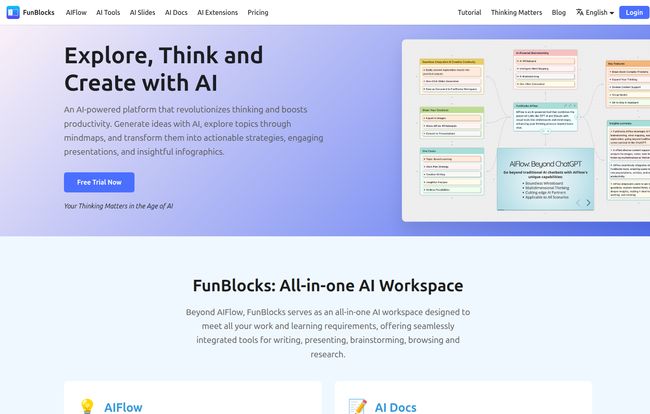
Visit FunBlocks AI
The Standout Features That Caught My Eye
An all-in-one platform is only as good as its individual parts. I've seen plenty of tools that try to do everything and end up doing nothing well. I was skeptical, but a few of FunBlocks' features genuinely made me sit up and pay attention.
AIFlow: Mind Mapping for the Modern Age
I have a love-hate relationship with mind mapping. I love the idea, but the execution always felt clunky. Dragging boxes, drawing lines... my flow of thought is always faster than my ability to build the map. Well, AIFlow might have just changed my mind completely.
This isn't your standard mind mapping tool. You give it a seed idea—a keyword, a question, a topic—and the AI starts building the map for you. It branches out with related concepts, sub-topics, and potential questions. I threw the simple keyword "content pruning" at it, and within about 30 seconds, it had spun up a whole content cluster map covering the definition, benefits, process, tools, and common pitfalls. It was like having a brilliant research assistant brainstorming right alongside me. This feature alone is a monster.
AI Docs and Slides: Your Content Creation Co-pilot
The AI Docs are, as you'd expect, where you do your writing. It's clean and works well. But the magic is how it connects to everything else. You can take a branch from your AIFlow mind map and instantly convert it into a section in your document, complete with AI-generated starter text. It removes so much of the friction of getting started.
And then there's the AI Slides generator. We've all been there, right? It's 10 PM and you suddenly remember you need a 10-slide presentation for the morning meeting. FunBlocks lets you generate slides in Markdown and can even create infographics with a click. It's not going to replace a detail-obsessed designer, but for creating a solid first draft and saving you hours of fiddling with PowerPoint alignments? Absolutely. It’s a lifesaver.
The Multi-Model AI Advantage
Here’s a detail that the real tech heads will appreciate. FunBlocks isn't locked into a single AI model. According to their site, they integrate with major players like GPT, Claude, and Gemini. Why does this matter? Because different models have different strengths. I've often found that Claude is fantastic for creative writing and summarization, while GPT-4 can be a powerhouse for logical reasoning and code. Having them all in one place is like a craftsman having a full set of specialized chisels instead of just one blunt instrument. You can pick the right tool for the job without having 15 different AI chat windows open.
The Browser Extension: AI Everywhere
The experience doesn't just live on their website. They also have a browser extension that brings the AI assistance to any page you're on. This is super handy for summarizing dense articles, drafting a quick reply to an email in Gmail, or getting insights on a competitor's webpage. It weaves the platform's utility into your day-to-day browsing, which is a smart move.
Putting FunBlocks to the Test: A Real-World Scenario
Talk is cheap, so I decided to plan this very blog post using FunBlocks. First, I jumped into AIFlow and started with the central topic: "FunBlocks Review." The AI immediately suggested branches like "Key Features," "Comparison with Notion," "Pros and Cons," and "Ideal User." I pruned a few and added my own, expanding on the ones I liked.
Next, I selected the whole mind map and told FunBlocks to create an AI Doc from it. Boom. A structured outline appeared, with each main branch of my map as an H2 heading. It even populated some of the sections with introductory sentences. From there, I could start fleshing out each point, using the built-in AI to refine a clunky sentence here and there. The process felt less like staring at a terrifyingly blank page and more like collaborating. It was a smoother, faster way to get from idea to a solid draft.
FunBlocks vs. The Competition: A Quick Showdown
So, how does FunBlocks stack up against the big names? Here's my quick take, based on their own comparison table and my experience:
| Feature | FunBlocks | ChatGPT | Notion | MindMeister |
|---|---|---|---|---|
| AI-native Workspace | ✔ | ✖ | Partial | ✖ |
| AI Mind Mapping | ✔ | ✖ | ✖ | Partial |
| AI Docs & Notes | ✔ | Partial | ✔ | ✖ |
| Multi-Model Support | ✔ | ✖ | ✖ | ✖ |
My analysis? Notion is still the king of customization. You can build almost anything in it, but its AI feels like an add-on. FunBlocks feels more focused, built for the specific workflow of thinking, outlining, and creating. ChatGPT is a conversationalist, an amazing one, but it's not a workspace. And MindMeister is a dedicated, fantastic mind mapper, but it's just one piece of the puzzle that FunBlocks tries to solve all at once.
The Not-So-Perfect Parts (Because Nothing Is)
Alright, let's not get carried away. It's not perfect. There are a few things to consider.
First, there's a bit of a learning curve. Because it's an integrated system, you get the most value when you learn its way of doing things. You can't just jump in and expect to be a power user in five minutes. Second, the heavy reliance on AI for content generation brings up the age-old debate about originality. My take? AI is a tool. A co-pilot. It's great for breaking through writer's block or structuring ideas, but if you rely on it to do all the thinking, your content will probably sound generic. Garbage in, garbage out, as they say.
And now for the elephant in the room... the pricing. As of me writing this, their pricing page is, well, a 404 error. It's just a "Page Not Found." I actually find this kind of amusing. Maybe they're so busy shipping cool features they forgot to connect the link? Or perhaps a new pricing structure is imminent. I'd speculate that there will be a free version with limitations (as mentioned in their cons) and then tiered paid plans for pro users. But for now, your guess is as good as mine.
So, Who Is FunBlocks Actually For?
After playing around with it for a while, a clear picture of the ideal user emerges. I see this being huge for:
- Students and Researchers: For deconstructing complex topics, organizing research, and drafting papers.
- Content Creators and Marketers: For brainstorming content ideas, creating detailed outlines, and drafting copy at speed.
- Product Managers and Strategists: For mapping out user flows, analyzing problems, and preparing presentations.
Basically, if your job involves a lot of thinking, brainstorming, and writing, FunBlocks wants to be your new best friend. If you feel constrained by the linear nature of a standard Word or Google Doc, you'll probably love the visual-first approach.
My Final Verdict
So, is FunBlocks the Notion-killer it's poised to be? Maybe. For certain people, definatly. It's less of a direct competitor and more of a different philosophy. It trades some of Notion's infinite customizability for a more streamlined, AI-centric workflow from idea to final product.
It’s an ambitious platform that's genuinely trying to integrate AI in a meaningful way, not just sprinkle it on top like some kind of magic dust. It's a peek into what the future of knowledge work might look like. It's not flawless, and the pricing is a complete mystery, but it's one of the most interesting and potentially useful tools I've put through its paces this year. If you feel like your creative process needs a jolt, I’d say it’s well worth exploring.
Frequently Asked Questions
What is FunBlocks in simple terms?
FunBlocks is an all-in-one AI workspace designed to help you think, write, and create. It combines AI-powered mind mapping, a document editor like Notion, a slide generator, and more into a single, integrated platform.
How is FunBlocks different from Notion?
While both use a block-based editor, FunBlocks is built around AI from the ground up. Its main differentiator is the AIFlow feature for visual brainstorming and the seamless integration between its mind mapping, document, and slide-creation tools. Notion is more of a customizable database, while FunBlocks is a more guided creative workflow.
Is FunBlocks free to use?
There appears to be a free version with some limitations. However, as of late 2023, their official pricing page is not working, so details about specific paid plans and their costs are currently unavailable. It's best to check their site directly for the most current information.
Can FunBlocks replace my ChatGPT subscription?
It could, depending on your use case. FunBlocks integrates multiple powerful AI models (like GPT and Claude) into its workspace. If you use ChatGPT primarily for writing assistance, research, and brainstorming, FunBlocks provides those capabilities within a more structured environment. However, for pure conversational AI, you might still prefer ChatGPT's interface.
What AI models does FunBlocks use?
FunBlocks supports multiple leading AI models, including those from the GPT family (by OpenAI), Claude (by Anthropic), and Gemini (by Google). This allows users to choose the best AI for a specific task.
Who is the ideal user for FunBlocks?
FunBlocks is best for anyone whose work involves intensive brainstorming, research, outlining, and writing. This includes students, content marketers, SEO professionals, researchers, project managers, and anyone who wants a more visual and AI-assisted way to get from an idea to a finished product.
